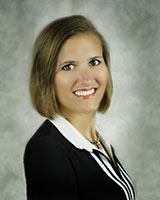PRF Payments Applicable to Lost Revenue Based on Formal Budgets
The latest HRSA guidance marks the fourth revision to lost revenue calculations for PRF reporting. How has it evolved and what do providers need to know?
- By Andrea Stark
- Feb 03, 2021
 Suppliers with formalized 2020 budgets approved prior to March 27, 2020, can now allocate Provider Relief Fund (PRF) payments to losses based on the organization’s budget-to-actual revenue. Before the passage of the Consolidated Appropriations Act (2021), reporting rules required suppliers to compare actual revenues for 2019 and 2020 to determine eligible losses for PRF payments.
Suppliers with formalized 2020 budgets approved prior to March 27, 2020, can now allocate Provider Relief Fund (PRF) payments to losses based on the organization’s budget-to-actual revenue. Before the passage of the Consolidated Appropriations Act (2021), reporting rules required suppliers to compare actual revenues for 2019 and 2020 to determine eligible losses for PRF payments.
In general, current guidance still requires suppliers without formal budgets, or without evidence of budget approval prior to March 27, 2020, to calculate revenue losses based on actual year-over-year comparisons. In its January Post-Payment Notice of Reporting Requirements, however, the Health Resources and Services Administration (HRSA) opened the door to reasonable alternative methods of calculating lost revenue. HRSA is the agency HHS chose to administer the Provider Relief Fund.
The latest HRSA guidance marks the fourth revision to lost revenue calculations for PRF reporting. The following timeline shows the evolution from the initial rules:
- September 19, 2020. The September instructions capped the use of lost revenues to an amount that would not make the organization more profitable in 2020 than 2019.
- October 22, 2020. The October revision reversed the profitability clause so providers could apply PRF payments against all lost revenue, net of healthcare expenses, without limitation.
- November 2, 2020. The November revision removed the net-of-healthcare expenses language so providers could apply PRF payments to all lost revenue without limitation. As a result, suppliers calculated lost revenue independent of increased expenses.
- January 15, 2021. The latest guidance incorporates the congressionally-mandated change to permit budgeted revenue projections as a viable input for lost revenue calculations. Moreover, suppliers may use other reasonable alternative methods of estimating lost revenue, though the HRSA will likely audit those choosing an alternate method.
Each subsequent revision clarifies the lost revenue calculation, but suppliers should not confuse clarification with advantage or gain. Individual circumstances will factor heavily into the amount of Provider Relief Fund dollars suppliers can earn, and as a result, some suppliers will have to return a portion of the funds they received.
As a reminder, suppliers that accepted over $10,000 in Provider Relief Funds agreed to terms and conditions which mandate reporting on the use of funds. The current 7-page post-payment notice contains many more details about which expenses and revenues qualify for reporting purposes. Because applicability and circumstances vary by company, we strongly advise suppliers work closely with a certified public accountant or knowledgeable accounting professional to ensure accurate reporting and application of the guidelines.
Source Links:
https://www.congress.gov/116/bills/hr133/BILLS-116hr133enr.pdf (Page 740)
https://www.hhs.gov/sites/default/files/provider-post-payment-notice-of-reporting-requirements-january-2021.pdf
https://www.hhs.gov/sites/default/files/post-payment-notice-of-reporting-requirements.pdf
https://www.hhs.gov/sites/default/files/post-payment-notice-of-reporting-requirements-october-2020.pdf
https://www.hhs.gov/sites/default/files/post-payment-notice-of-reporting-requirements-november-2020.pdf
About the Author
Andrea Stark is a Medicare consultant and reimbursement specialist with MiraVista LLC (www.miravistallc.com), where she helps home medical equipment suppliers, hospitals, and pharmacies. Stark began here career in the Medicare field in 1998, starting with five years working for Medicare at the Region C DMERC, Palmetto GBA, and then co-founding MiraVista in 2003.
Andrea Stark is a Medicare consultant and reimbursement specialist for medical equipment suppliers, hospitals, and pharmacies.